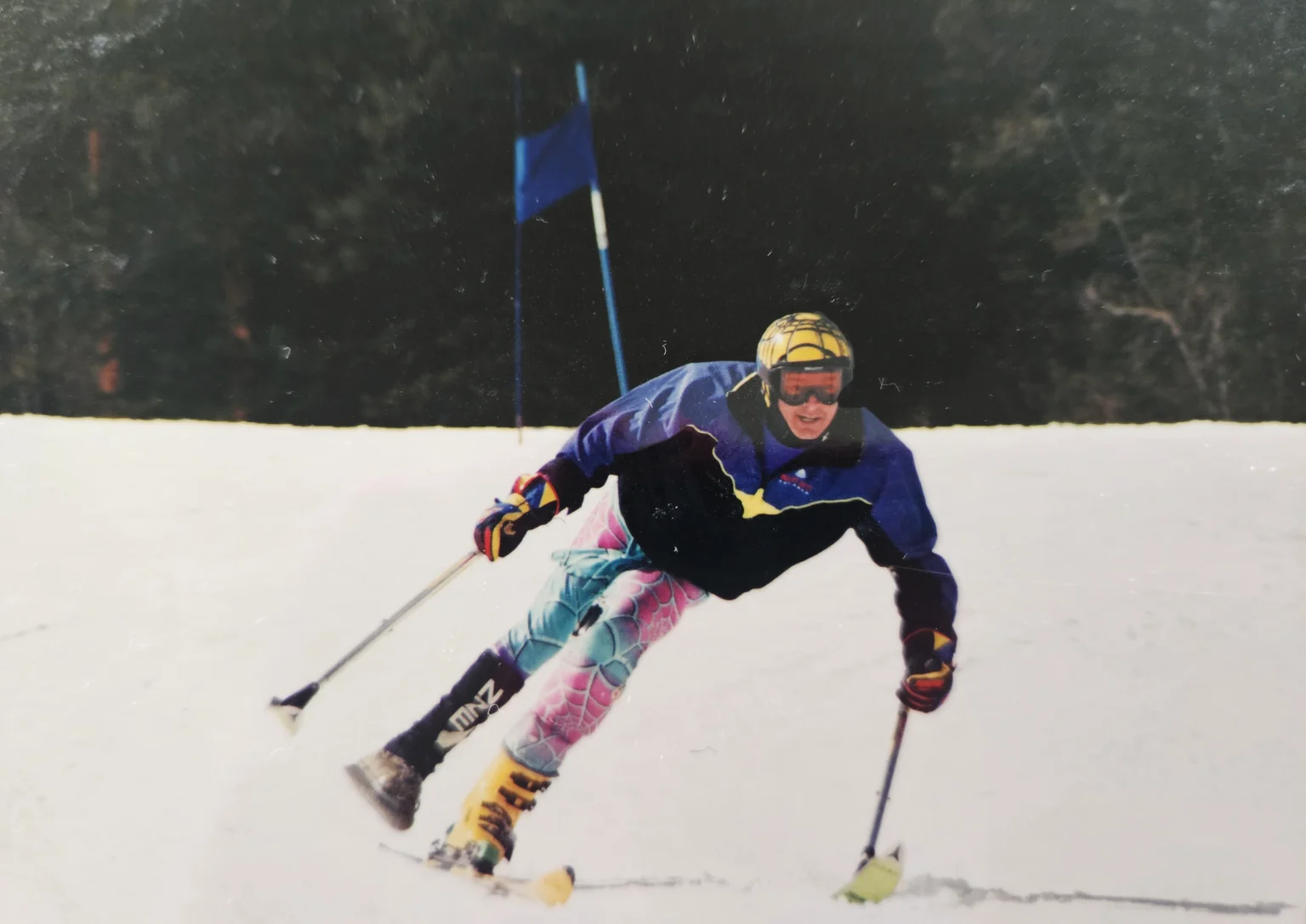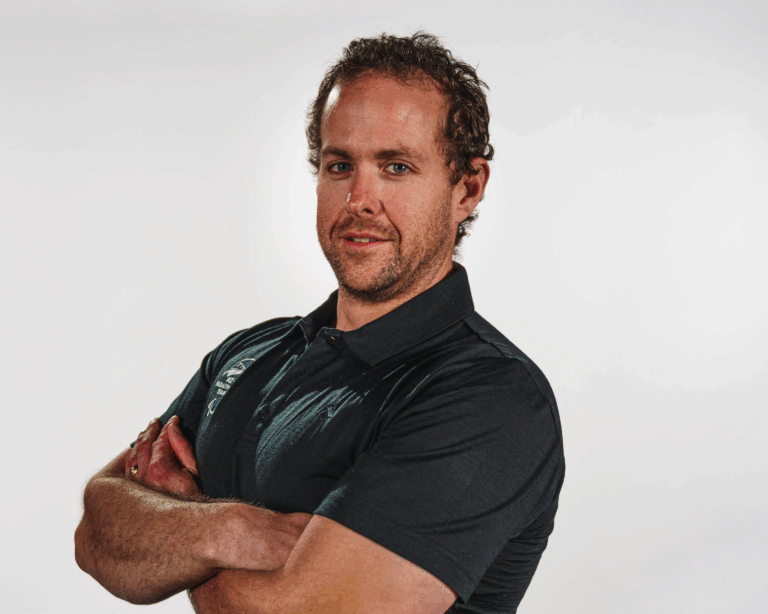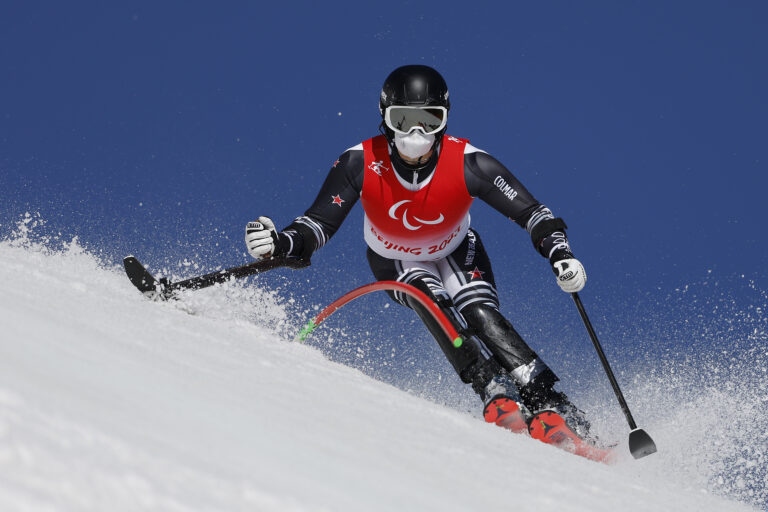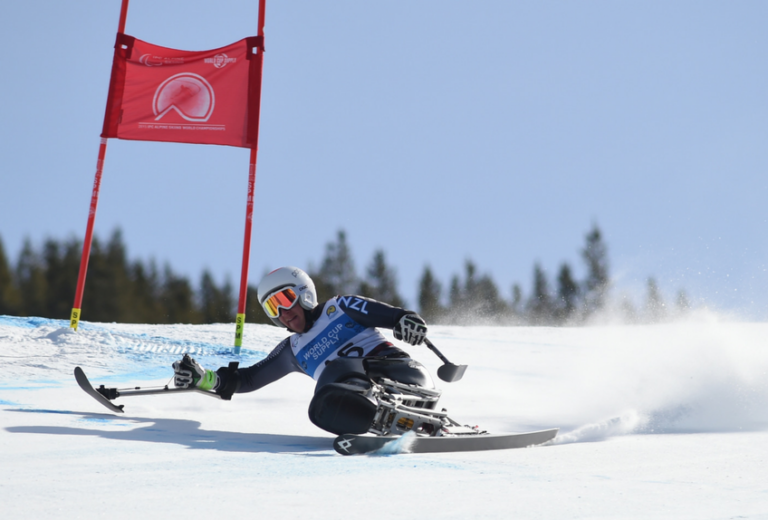Contributing to the most successful NZ Paralympic Team in Paralympic Winter Games history, Paralympian #71 Kevin O’Sullivan stands tall as a Kiwi icon of the slopes.
Appearing at three Paralympic Winter Games, Kevin made his debut in Albertville 1992 before banking Men’s Giant Slalom LW1/3 bronze at Lillehammer 1994.
However, his finest moment arrived at the Nagano 1998 Paralympic Winter Games when Kevin blitzed to a stunning gold medal in the Men’s Super-G LW1,3,5-7 – one of six podium placings plundered by the NZ Paralympic Team who excelled on the slopes of the Happo-one Resort in Japan.
Raised in the small town of Omarama in the McKenzie Basin, Kevin was born with a congenital dislocation of the hips – which resulted in one leg being significantly shorter than the other.
Despite the disability he loved sport and played rugby, cricket and a range of sports as a child. However, the direction of his sporting life was to change forever after taking up a summer job in ski hire at Mt Hutt.
Aged in his early 20s at the time Kevin recalls during his early days in the role: “I was approached by someone who said, ‘you should try skiing?’ I laughed because I thought it would be too hard, but a ski instructor insisted on taking me out for a few lessons. I was surprised after giving it a go, I took up skiing quickly. I loved the freedom of skiing.”
Despite the differential in the length of his legs, Kevin made rapid progress on the snow and the opportunity for a potential international ski racing career was presented to him after the US Disabled Ski Team travelled to Cardrona for a training camp in 1988.
“The US team were the best of the best and we later spent some time training with them in America,” he explains. “They could take you from a beginner to wherever you wanted to go. If you wanted to do the sport just for fun, that was fine, but if you wanted to do it more seriously there was a pathway.”
Excited by the possibilities, Kevin trained with the US team during both the Southern and Northern Hemisphere winters. Continuing to progress under top-level coaching – and embracing “the miles and miles” of ski fields at Winter Park – in 1990 he made his international debut at the Disabled Alpine World Championships (now known as the World Para Alpine Skiing Championships) held at the same Colorado-based venue.
There he placed a highly respectable fourth in his favoured discipline of giant slalom, however revealing his competitive spirit he said of finishing fourth, “I was pissed off. I wanted to win! Although both America and Canada had some very good skiers back then,” he concedes.
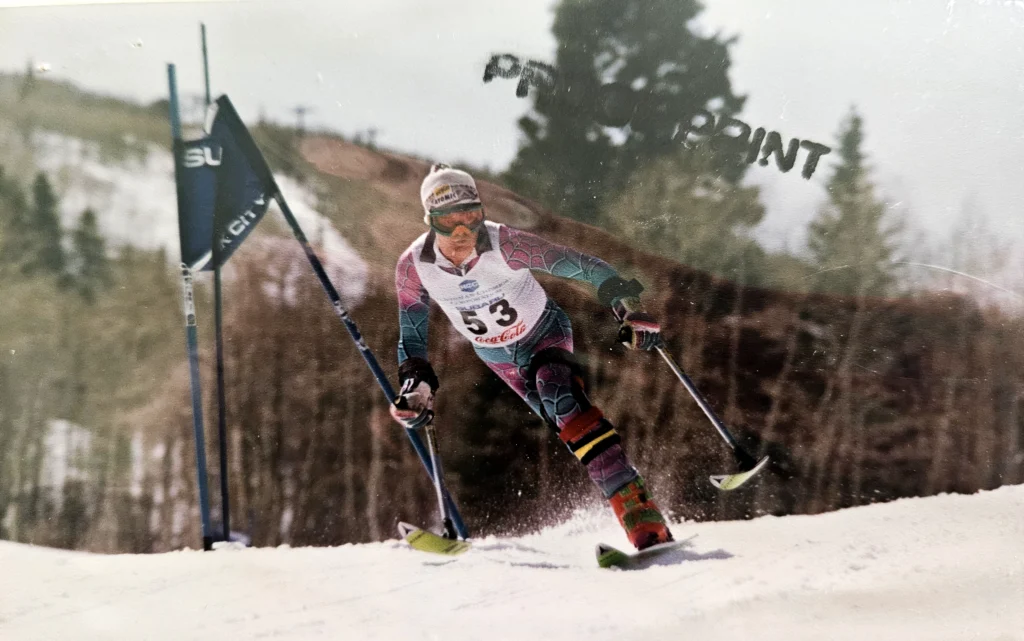
Guided by Kiwi coach Peter McCullum he earned selection for the NZ Paralympic Team to make his Paralympic debut in Albertville 1992 in the French Alps.
While proud to represent his country on the biggest stage he has mixed memories of his time at Albertville, which very nearly ended in disaster for the then 26-year-old.
“I was on the slopes when a loader started clearing the snow. I hadn’t noticed it when someone yelled out to me to move. I was lucky I managed to jump out of the way in time. It was pretty spooky stuff!”
Competitively, he finished ninth in the Men’s Slalom LW1,3,5-7,9, 17th in the Men’s Downhill LW1,3,5-7,9 and did not finish (DNF) in the Men’s Giant Slalom LW1,3,5-7,9 but up against Para alpine skiers with a broad range of disabilities, Kevin was frustrated.
“I was up against skiers with two legs and one arm, and I couldn’t compete with that,” he says.
Thankfully by the time of Lillehammer 1994 there was a significant tightening of the classification format in which Kevin would only be competing against LW1 and LW3 Para alpine skiers.
Motivated by the prospect, he recalls a happy NZ Paralympic Team which included the likes of double gold medal winning Paralympian #55 Patrick Cooper and #85 Mathew Butson.
Opening his campaign with a solid sixth place finish in the Men’s Downhill LW1/3, Kevin recorded a DNF in both the Men’s Super-G LW 1/3 and Men’s Giant Slalom LW 1/3 but enjoyed success in the 11-strong Men’s Slalom LW 1/3 field when taking bronze behind the American Chris Young.
“I had a bit of luck that they only combined the LW1s with the LW3s, but it all turned out for the best,” adds Kevin, who was working as a salesman in a sports shop in Ashburton at that time. “I had beaten Chris at Winter Park a couple of weeks earlier, but that’s ski racing. It was good to finally win something for my country.”
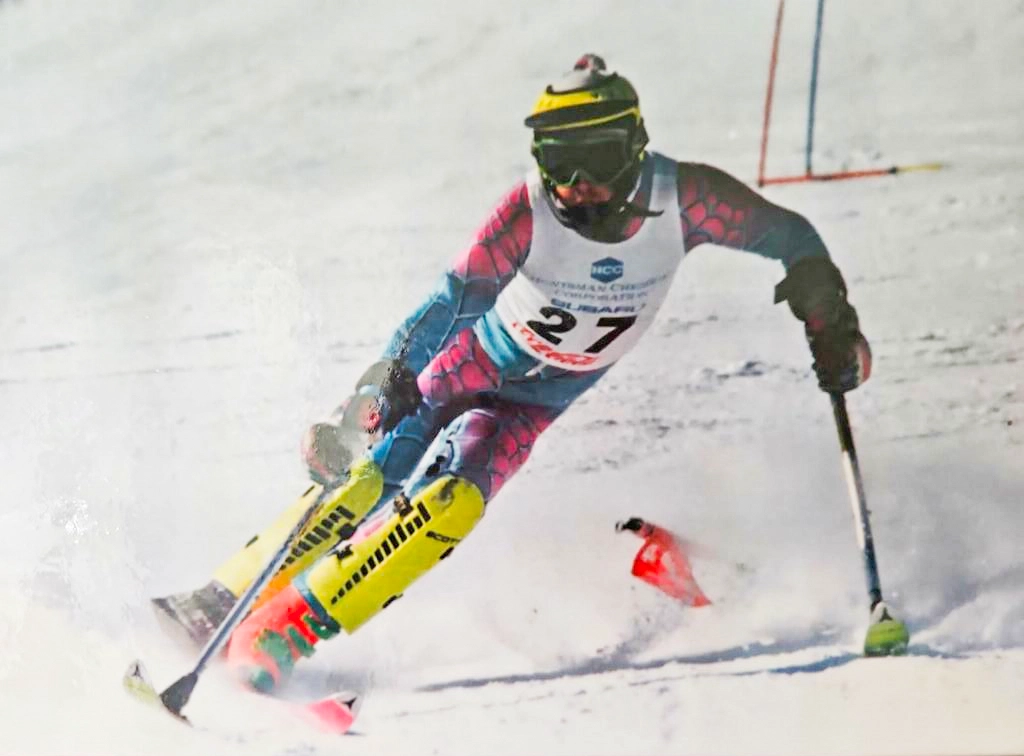
Having largely previously relied on fundraising and the financial support of mum and dad to aid his international Para alpine skiing career he was delighted to receive financial support from the Hillary Commission to aid his preparations leading into Nagano 1998.
Enjoying a successful 1996 Disabled Alpine World Championships in Austria, Kevin secured a Giant Slalom silver medal and a bronze in the Super-G.
A huge fan of the slalom because “I enjoy bashing through gates” – he arrived at Nagano 1998 confident of a prominent showing.
While his team-mate Mathew Butson was the star of a stellar five-strong NZ Paralympic Team – winning three gold medals and a silver – and Paralympian #115 Steven Bayley claimed a bronze, Kevin also made a significant impact.
Competing in front of the largest crowds he had experienced at a Paralympic Games the Kiwi opened his account placing eighth in the Men’s Downhill LW1,3, 5-7 a performance which he describes as “as a training run for the Super-G and to get a feel for the hill.”
Moving on to the Super-G LW1,3, 5-7 he was drawn to start first and was pleased to record a time of 1:14.15, which he was confident was a quick time.
“I then just had to wait at the bottom of the hill and sit through the rest of the competition,” he recalls having laid down an early marker.
The nervous wait was to prove successful. The American Jacob Rife was the second quickest competitor – almost two-and-a-half seconds slower than the Cantabrian, who had secured a memorable gold medal.
“I just remember the Team were very supportive and everyone was very happy,” he explains of his memory of striking gold.
Kevin registered a DNF in the Men’s Giant Slalom LW1,3,5-7 before concluding his campaign with a fourth place in the Men’s Slalom LW1,3,5-7.
“The hill was flat and the course for the slalom was not too technical but that is what happens in sport,” he says. “But to win a gold medal at the Paralympic Games was great. I was also given a cash bonus for winning gold, which helped pay the bills.”
Aged 32 at the time and having achieved everything he wanted to in the Para sport he opted to retire from Para alpine skiing.
Kevin went on to work in a sports shop for a period and later worked in pubs before retiring to spend more time with his wife, Anne, his two step-children and four grandchildren.
Today aged 59 and based in Christchurch he looks back with pride on his Para alpine skiing journey describing it as a “great adventure.”
“The sport gave me freedom,” he says. “I’m very proud of becoming a Paralympic champion. The gold and bronze medals I won at the Paralympic Games still sit up on a wall in the lounge.”
***To find out more about Para alpine skiing go here
***The Milano Cortina 2026 Paralympic Winter Games take place on March 6-15. Find out more here

